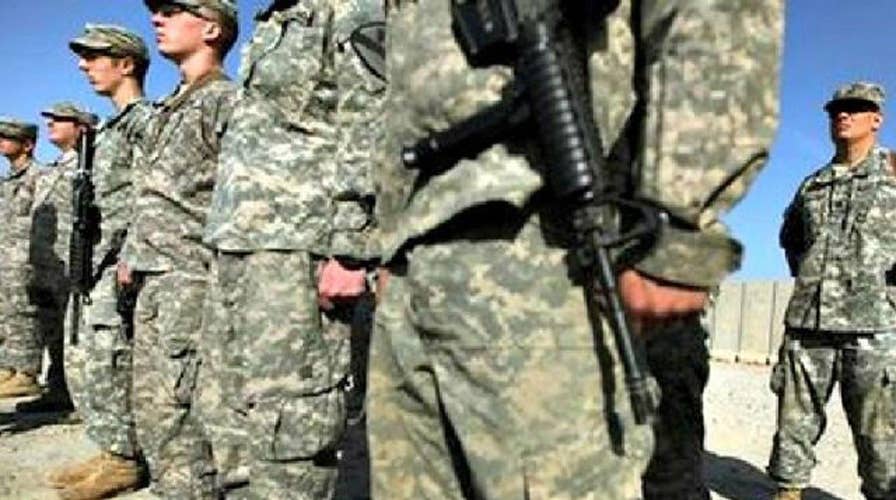Critics question the expansion of US troops in Syria
President Obama is upping the commitment to fight ISIS; Kevin Corke explains on 'Special Report'
The U.N. envoy for Syria called upon President Obama and Russian President Vladimir Putin Thursday to help revive stalled peace talks, saying a recent spike in fighting has overshadowed the talks and put an increasingly feeble truce in “great danger.”
Staffan de Mistura told reporters that the cessation of hostilities agreed upon by the Western- and Saudi-backed opposition and envoys from President Bashar Assad’s government – backed by Moscow –“hangs by a thread.”
"I really fear that the erosion of the cessation is unraveling the fragile consensus around a political solution, carefully built over the last year," de Mistura said in his U.N. Security Council briefing. “Now I see parties reverting to the langue of a military solution or military option. We must ensure they do not see that as a solution or an option.”
De Mistura said he’s urging the leaders of the U.S. and Russia to intervene because both presidents’ legacies are “linked to the success of what has been a unique initiative which started very well.”
U.S. Secretary of State John Kerry and Russian Foreign Minister Sergey Lavrov largely spearheaded the current effort to end the five-year Syrian conflict.
De Mistura appealed not only for U.S.-Russia intervention but for international support, calling in the Security Council briefing for another ministerial meeting of the International Syria Support Group "lest we lose the window of opportunity to reverse the negative downward spiral."
The International Syria Support Group includes 17 countries as well as the United Nations, Arab League, European Union and Organization of Islamic Cooperation.
De Mistura said he hoped that the talks would resume in May, and he predicted the overall process would continue as previously planned through July. But he stopped short of setting a specific date, point to the recent surge in fighting, notably in and around Aleppo.
According to Reuters, the opposition group – High Negotiations Committee – pulled out of formal talks a week ago in protest of the intensified fighting and the slow response for aid deliveries.
Bashar Ja’afari, who led the government delegation, said Tuesday the latest round of talks were “useful and constructive,” but gave no sign of giving into the opposition’s demands of forming a new government without President Assad.
Lamenting the worsening violence, he said that "in the last 48 hours, we have had an average of one Syrian killed every 25 minutes, one Syrian wounded every 13 minutes ... How can you have substantial talks when you have only news about bombing and shelling?"
Speaking at the end of a third session of Syria peace talks this year, de Mistura said the truce brokered by the U.S. and Russia had pulled off a "miracle" by sharply reducing violence in March, but acknowledged that the renewed fighting has put the cessation of hostilities "in great danger."
He called for a "U.S.-Russian initiative at the highest level" to help reinforce it.
"There is no reason that both of them — who have been putting so much political capital in that success story and have a common interest in not seeing Syria ending up in another cycle of war — should not be able to revitalize what they created, and which is still alive, but barely," he said of the two countries.
State Department spokesman John Kirby said he shared de Mistura’s concerns and urged Russia to press the Assad regime “to fulfill its commitments.”
The talks floundered last week after the Western- and Saudi-backed opposition called the High Negotiating Committee suspended formal participation in the indirect talks with Assad's envoys to protest alleged government cease-fire violations, a drop in humanitarian aid deliveries and no progress in winning the release of detainees in Syria.
De Mistura suggested back-channel work between Moscow and Washington was already under way to help the truce, and that a revival of it would help bring the two sides back to the table.
"I know that both the Russian Federation and the U.S. are talking among themselves on how to salvage on what has been actually a remarkable success — but needs to be sustained," he said, referring to the cease-fire. If it is revived, he predicted: "It will not be difficult for everyone to come back around the table."
The Associated Press contributed to this report.

